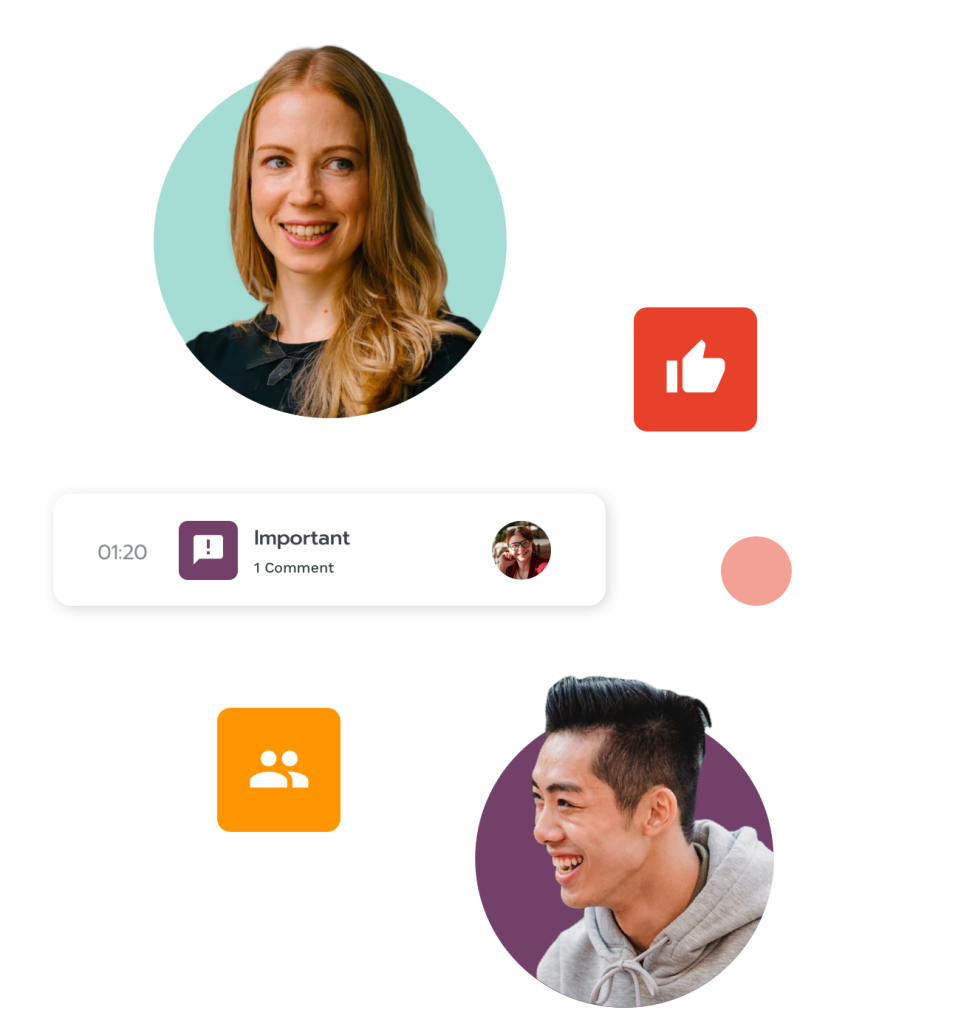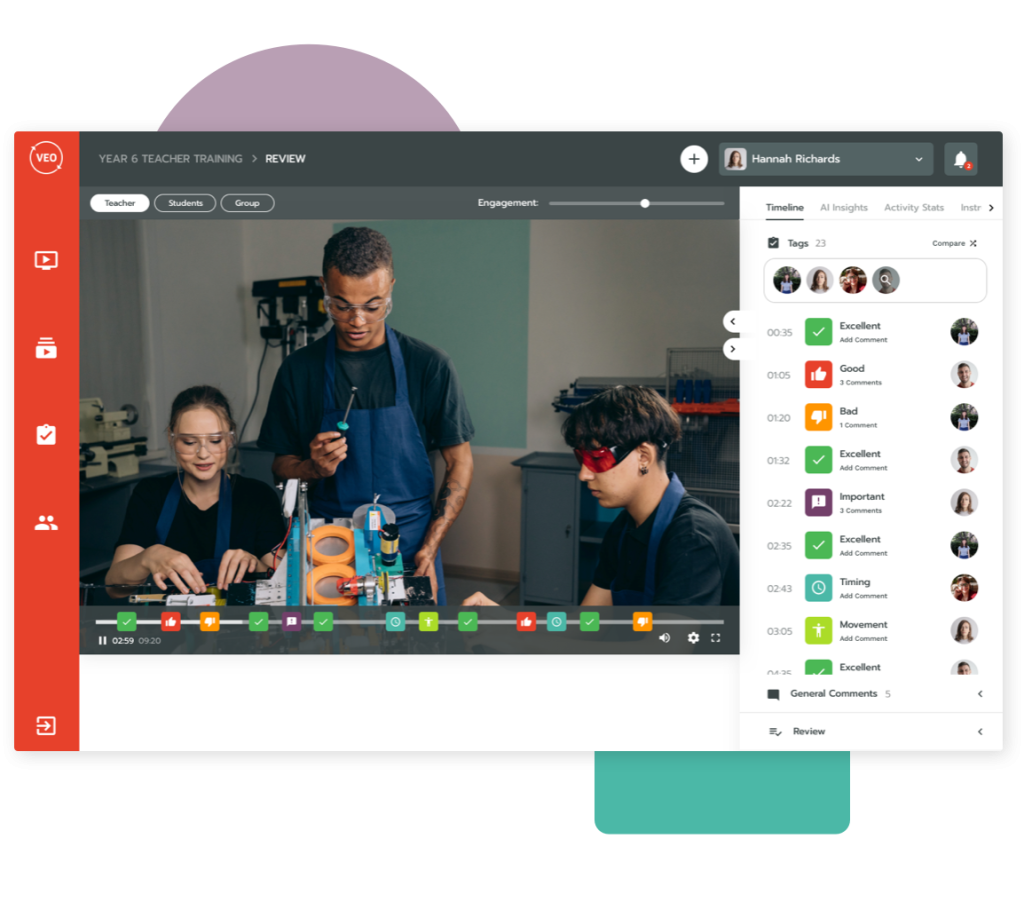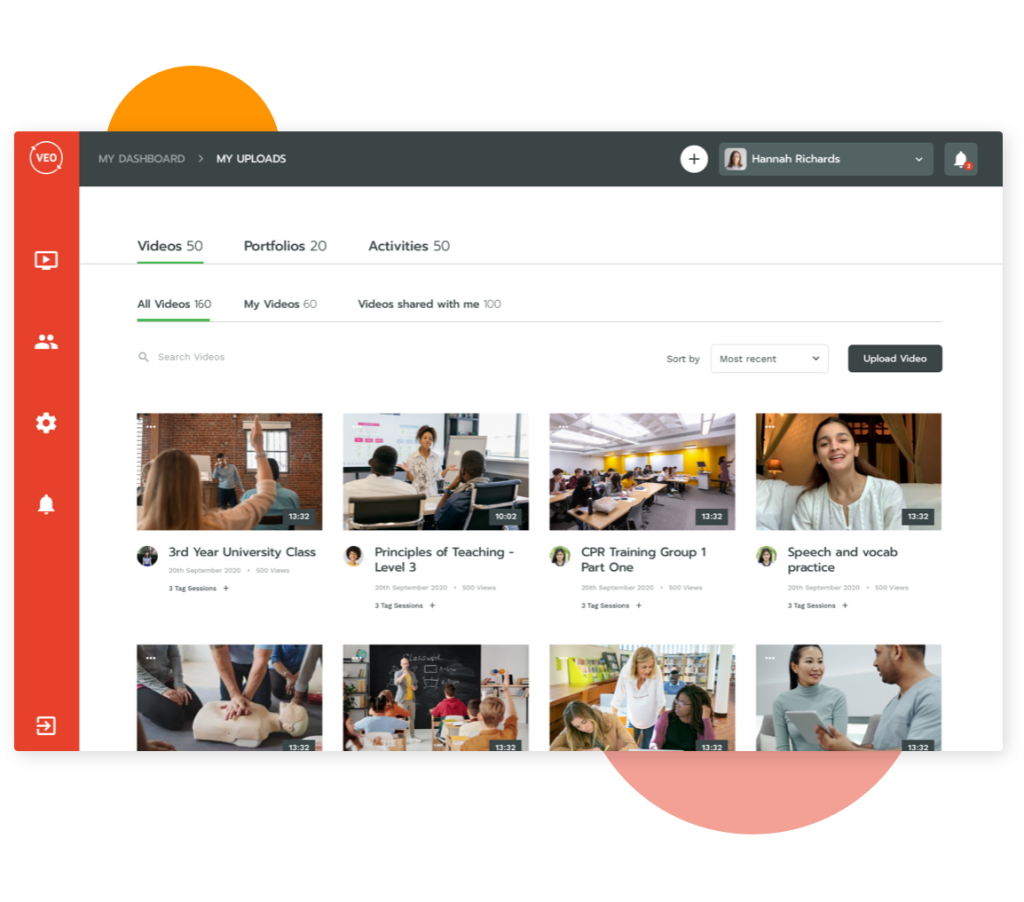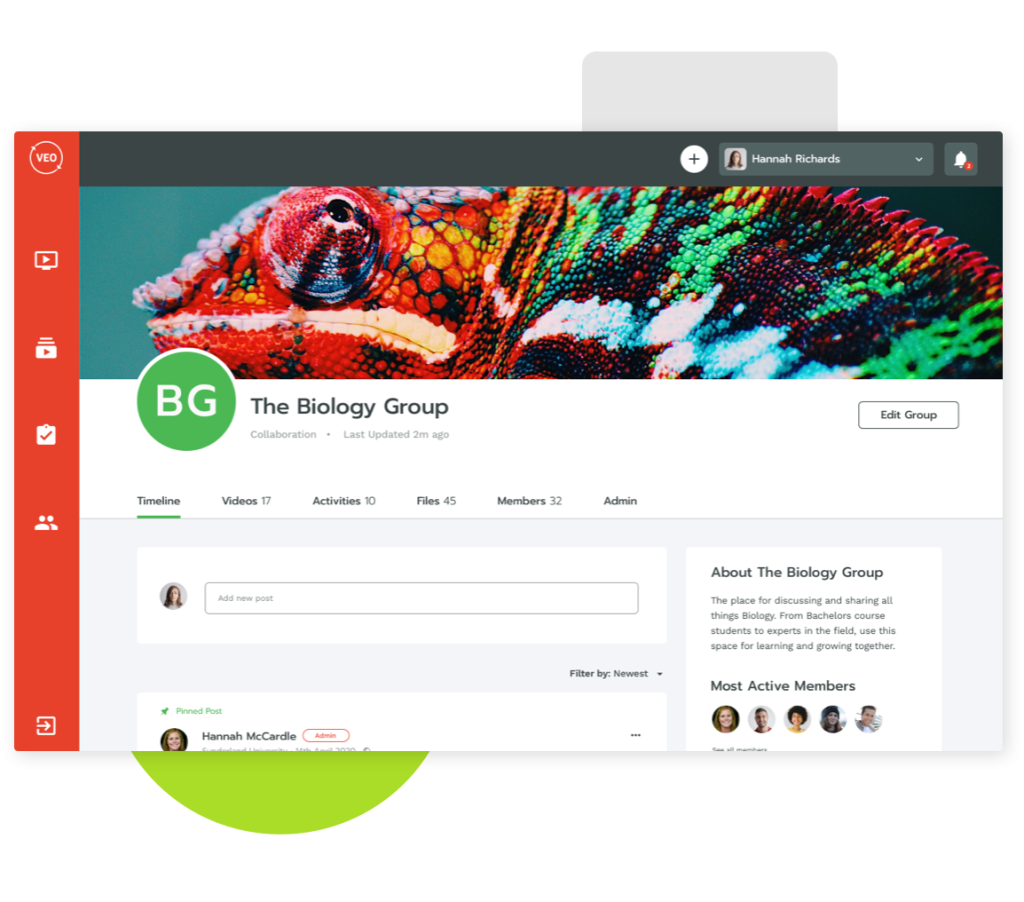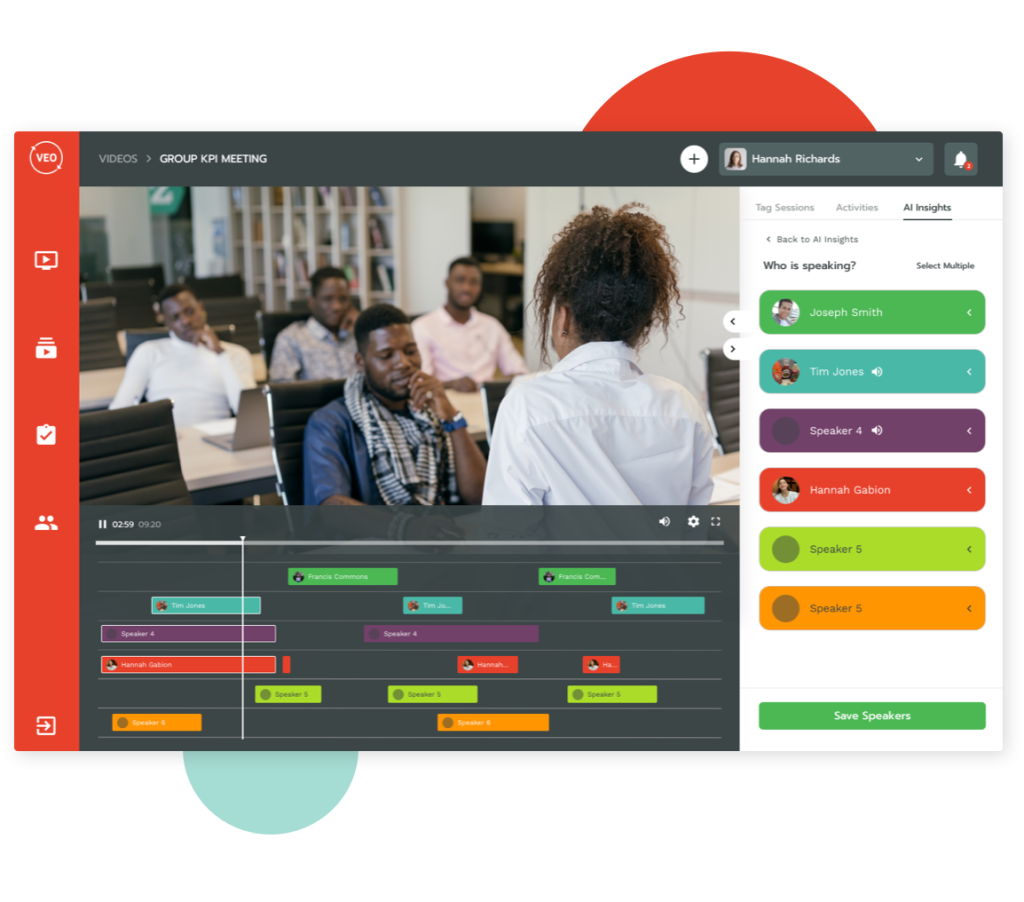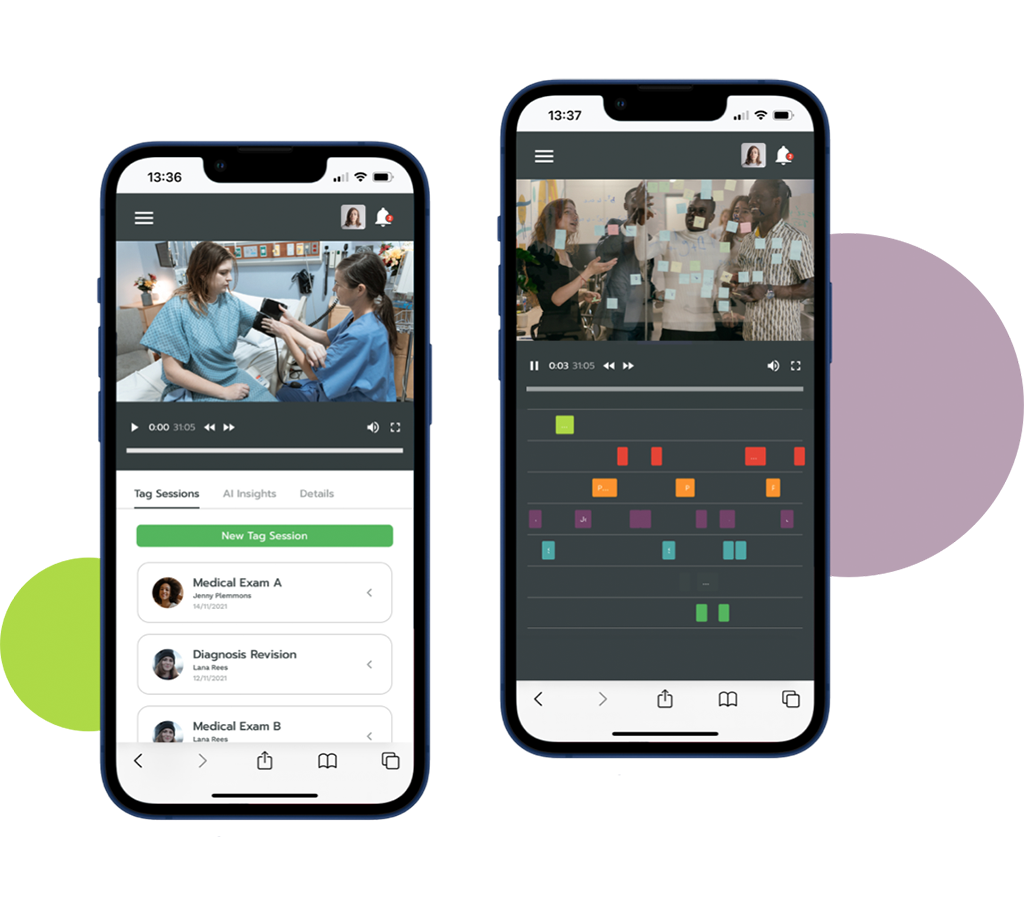Teaching and Learning Practices
VEO Research articles
VEO has been evidenced in many research projects looking at teaching and learning practices worldwide. This is a list of such research into VEO.
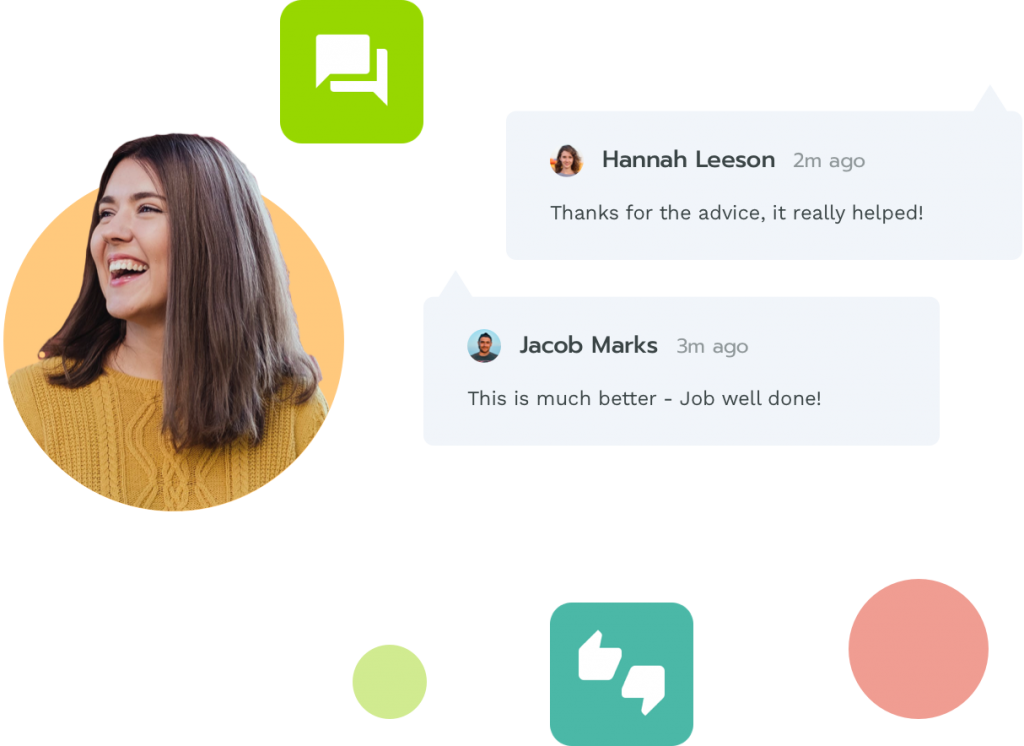
Developing Teaching and Learning Practices
VEO has been evidenced in many research projects looking at teaching and learning practices worldwide.
It’s been at the centre of research into improving continuous professional development, reflective practice for teachers, school leadership and more specific topics such as enhancing language learning. VEO itself has been developed based on research into the most effective ways to embed learning and generate lasting positive change through education technology.
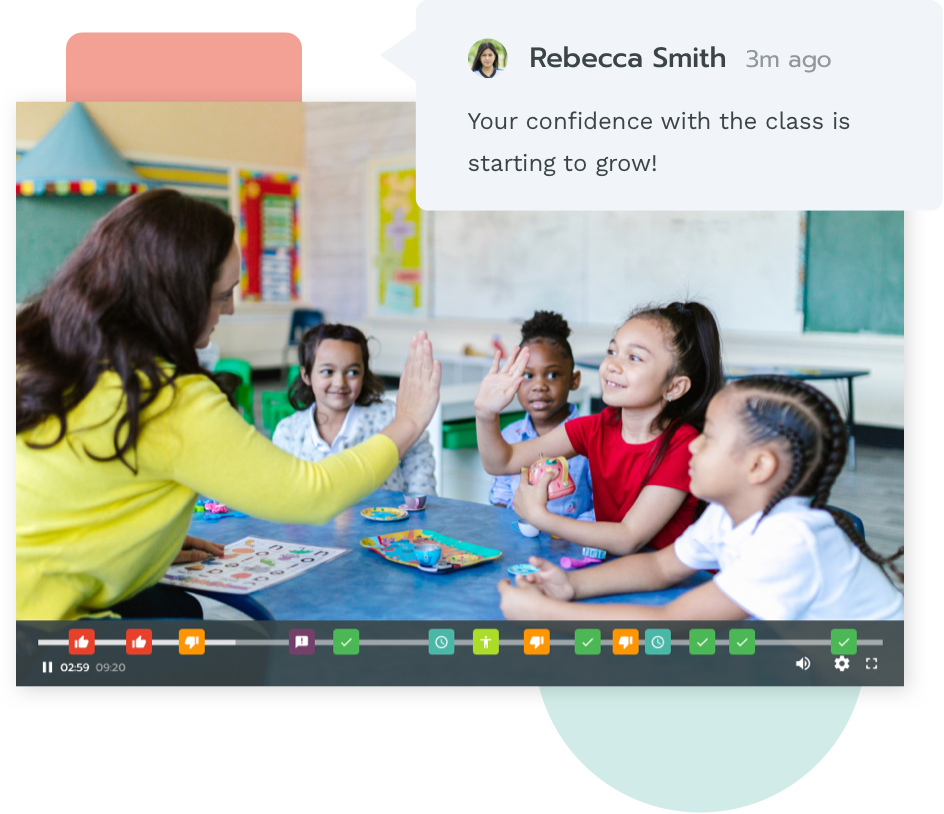
Teacher Education During the COVID-19 Pandemic
At the University of Amsterdam, two pilot projects are being conducted using VEO, involving preservice student teachers from the MA Education and novice university lecturers working towards their University Teaching Qualification. The aim of the projects is to develop specific tag sets for both groups that will allow them to systematically reflect on the (online) classes they teach and that will foster structured peer feedback.
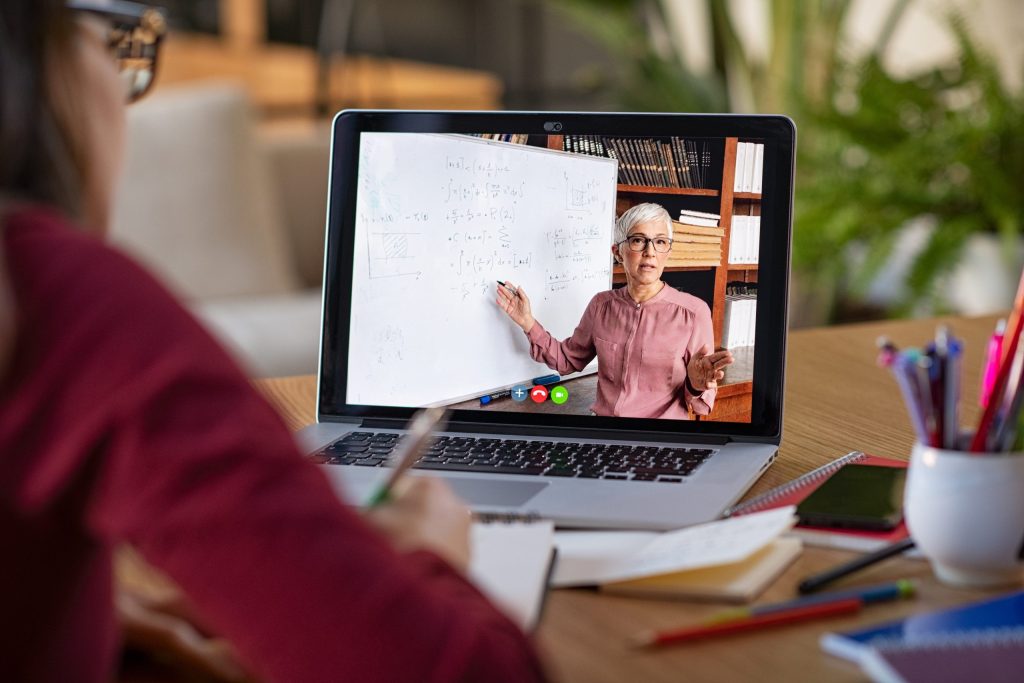
Digi-REFLECT, Sweden
“VEO is being used in Digi-REFLECT – a research and development project in Sweden aiming to enhance teachers’ roles and leadership in classrooms.
Mälardalen University researchers of language and maths are developing tagsets on VEO, used with mentors and student-teachers in schools. The project focuses on ways this evidence-based, digital classroom observation tool improve reflection and feedback practices. Through a qualitative, data-driven analysis of lessons, post-observation feedback sessions, and interviews, it explores ways a digitally enhanced teacher education framework creates affordances for teacher development.”
– Olcay Sert, Mälardalen University
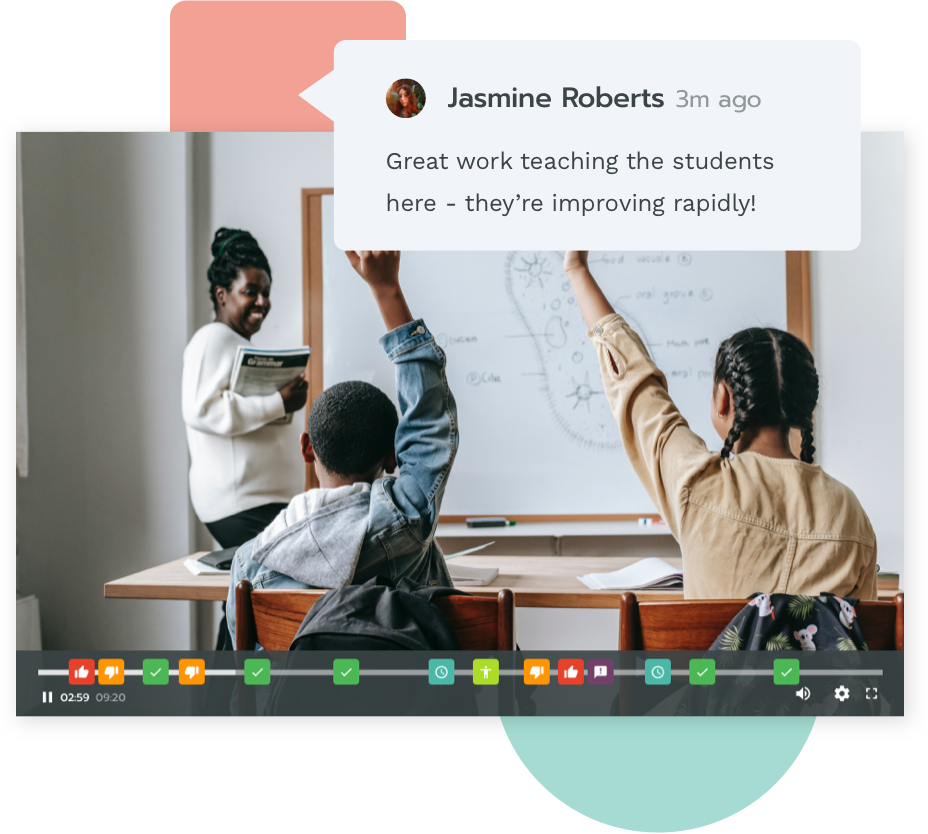
ABC-Pals Project
“VEO is supporting parents in parent/child interaction as part of the ABC-PALS project. This project is comparing the effects of different methods of parent training interventions, of which VEO is one.
With VEO, parents can view their therapist’s feedback as they rewatch themselves interacting with their child, and it also allows them to tag interactions themselves. The reflective nature and the immediate clear feedback means parents can better understand and use the techniques. Crucially, VEO allows parents to receive high quality therapy when they may find it hard to attend training.”
– Newcastle University
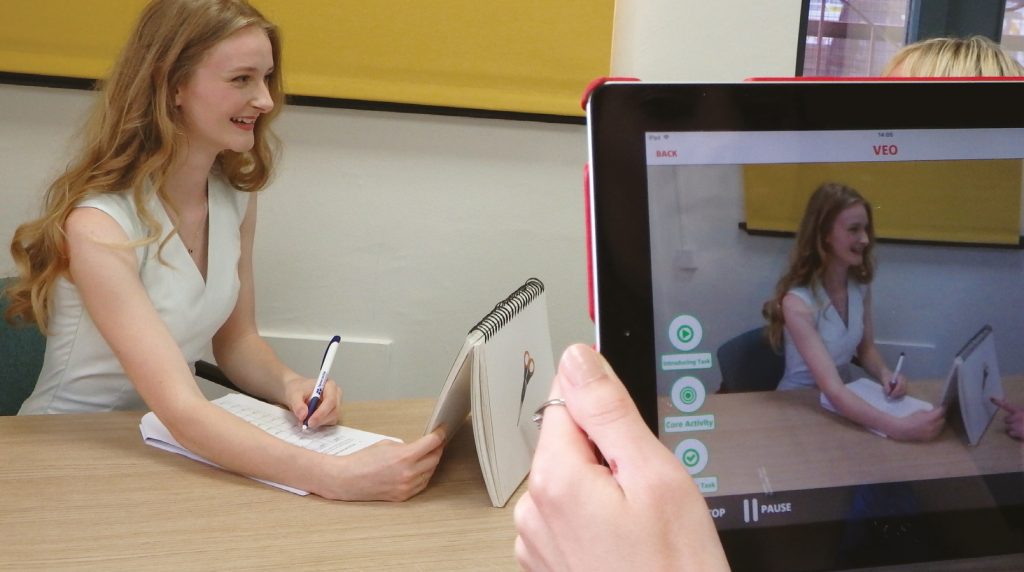
Research Articles into VEO
VEO is playing an active part in research into developing teaching, learning and reflective practices in settings across the globe.
-
2023
Liesa E, Mayoral P, Giralt-Romeu M, Angulo S (2023) Video-Based Feedback for Collaborative Reflection among Mentors, University Tutors and Students. Education Sciences, 13(9):879, Available online.
Evrim Baran, Dana AlZoubi & E.J. Bahng (2023) Using video enhanced mobile observation for peer-feedback in teacher education, Journal of Digital Learning in Teacher Education, 39:2, 102-113, Available online.
-
2022
Gynne, A., Larsson, M. & Sert, O. (2022). Digitaliserad reflektion kring lärares agerande i klassrumsinteraktion. I A. Nordin & M. Uljens (red.), Didaktikens språk – om skolundervisningens mål, innehåll och form (s. 171-180). Malmö: Gleerups.
Koh, Wendy. “Continuing Professional Development (CPD): Supporting the Delivery of Quality Teaching in Physical Education.” CPD for Teaching and Learning in Physical Education. Routledge, 2022. 289-306.
Koglbauer, René, Jon Haines, and Paul Seedhouse. “Video Enhanced Observation.” Classroom Discourse Competence: Current Issues in Language Teaching and Teacher Education 8 (2022): 161.
-
2021
Jaume Batlle Rodríguez, and Vicenta González Argüello (2021) Observar para aprender: Valoración del uso de la herramienta Video Enhanced Observation (VEO) en la formación del profesorado de español como lengua extranjera. En: Satorre Cuerda, Rosana (coord.). Redes de Investigación e Innovación en Docencia Universitaria. Volumen 2021 = Xarxes d’investigació i innovació en docència universitària. Volum 2021. Alacant: Institut de Ciències de l’Educació (ICE) de la Universitat d’Alacant, 2021. ISBN 978-84-09-29261-5, pp. 175-184 Available online.
Paul Seedhouse, and Müge Satar (2021). The Rashomon effect: which features of a speaker’s talk do listeners notice?. Classroom Discourse, pp.1-23. Available online.
Seedhouse, Paul, ed. Video Enhanced Observation for Language Teaching: Reflection and Professional Development. Bloomsbury Publishing, 2021.
Simon Borg (2021) Video–based observation in impact evaluation, Evaluation and Program Planning, 89, available online
-
2020
R. Van der Zwaard & A. Bannink. (2020) Coaching Novice Inservice University Lecturers: From Face-to-Face Supervision to Online Video Tagging. In: Ferdig, R.E., Baumgartner, E., Hartshorne, R., Kaplan-Rakowski, R. & Mouza, C. (2020). Teaching, technology, and teacher education during the COVID-19 pandemic: Stories from the field, pp 521-527. Association for the Advancement of Computing in Education (AACE). Available online.
Jaume Batlle Rodríguez, Azahara Cuesta García & M. Vicenta González Argüello (2020). El microteaching como secuencia didáctica: inicios de los procesos reflexivos en la formación de los profesores de ELE / Microteaching as a learning sequence: beginnings in reflective processes in SFL teacher training. E-SEDLL Journal: Centro Virtual Cervantes. 3. 62-73. Available online.
Llinares, A. and Mendikeotxea, A. (2020) ‘Enhancing Interactional Competence in EMI: Teacher Reflective Practices’ in Sanchez-Perez, M. Teacher Training for English-Medium Instruction in Higher Education. Hershey, PA, USA: IGI Global
-
2019
Hidson, E. (2019). Video-enhanced observation: A new window on lesson feedback in a PGCE school placement. Impact: Journal of the Chartered College of Teaching. January 2019. Available online.
Minna Körkkö, Sandra Morales Rios & Outi Kyrö-Ämmälä (2019) Using a video app as a tool for reflective practice, Educational Research, 61:1, 22-37, DOI: 10.1080/00131881.2018.1562954
Minna Körkkö (2019) Towards Meaningful Reflection and a Holistic Approach: Creating a Reflection Framework in Teacher Education, Scandinavian Journal of Educational Research, DOI: 10.1080/00313831.2019.1676306
Morales, S., Flores, S., & Trajtemberg, C. (2019). Promoting pre-service teachers’ inquiry skills in a blended model. In C. N. Giannikas, E. Kakoulli Constantinou & S. Papadima-Sophocleous (Eds), Professional Development in CALL: a selection of papers (pp. 39-53). Research-publishing.net. https://doi.org/10.14705/rpnet.2019.28.869
Sert, O. (2019) Classroom interaction and language teacher education. In S. Mann and S. Walsh (eds) The Routledge Handbook of Language Teacher Education. New York: Routledge.
Walsh, S. (2019). SETTVEO: Evidence-based reflection and teacher development. ELT Research Papers May 2019. Available online.
-
2018
Clegg, D., Du Rose, A., & Byfield, D. (2018). The Effect of Psychomotor Skills Training Feedback Using Video Enhanced Observations (VEO) on VIVA Outcomes: Platform Presentation. Abstract from WFC/ACC 10th Chiropractic Education Conference, London, United Kingdom.
Hockly, N. (2018) Video-based observation in language teacher education. ELT Journal, 72(3), July 329–335. https://doi.org/10.1093/elt/ccy022
Çelik, S., Baran, E. & Sert, O. (2018). The Affordances of Mobile-App
Supported Teacher Observations for Peer Feedback. International Journal of Mobile and Blended Learning, 10(2), 36-49. DOI: https://doi.org/10.4018/IJMBL.2018040104. Final version available.Sert, O. (2018). Transforming CA findings into future L2 Teaching Practices: Challanges and Prospects. In (eds.) Kunitz, S., Sert, O., Markee, N. Emerging Issues in Classroom Discourse and Interaction: Theoretical and Applied CA perspectives on Pedagogy. Springer.
Hidson, E. (2018). Video-enhanced lesson observation as a source of multiple modes of data for school leadership: A videographic approach. Management in Education, 32(1), 26-31. DOI: https://doi.org/10.1177/0892020617748144. Accepted version available.
Schwab, G., (2018) Unterrichtsinteraktionen besser verstehen – Mikroanalytische Ansätze zur Interpretation von sprachlichem Handeln im Englischunterricht. In H. Limberg and Jäkel O. (Eds), Unterrichtsforschung im Fach Englisch. Empirische Erkenntnisse und praxisorientierte Anwendung. Peter Lang
-
2017
Kyrö-Ämmälä, O., Körkkö, M., & Turunen, T. (2017). Miten opettajaopiskelijasta kasvaa reflektiivinen praktikko? eNorssi Sirius 6 (2) 34-39. Available to download from https://issuu.com/enorssi/docs/sirius_2_2017_pdf/34?ff=true
Batlle Rodríguez, J. & Miller, P. (2017): “Video Enhanced Observation and Teacher Development: Teachers’ Beliefs as Technology Users”. EDULEARN17 Proceedings, 2352-2361.Batlle_MIller_2017.
Batlle Rodríguez, J., 2017. Parekoen behaketa irakasleen garapen profesionalean: Video Enhanced Observation (VEO) sistemarekin egindako esperientzia praktiko bat. Hizpide: euskalduntze – alfabetatzearen aldizkaria, 90, 1-13. Available online.
Boßhart, S. (2017). Professionalisierung angehender Englischlehrkräfte der Sekundarstufe I durch innovative Videografie. Academic paper (supervisor: Mareike Oesterle & Götz Schwab). Karlsruhe University of Education.
Mann, S., Walsh, S. (2017). Reflective Practice in English Language Teaching. New York: Routledge, https://doi.org/10.4324/9781315733395
-
2016
Batlle Rodríguez, J. (2016). An interview with Paul Seedhouse on Video Enhanced Observation (VEO): A new tool for teacher training, professional development and classroom research. Bellaterra Journal of Teaching & Learning Language & Literature, 9(3), 90-97. DOI: http://dx.doi.org/10.5565/rev/jtl3.687. Available to download from: http://revistes.uab.cat/jtl3/article/view/v9-n3-battle
Haines, J., & Miller, P. (2016). Video-Enhanced Observation: Developing a flexible and effective tool. In M. O’Leary (Ed.), Reclaiming Lesson Observation: Supporting Excellence in Teacher Learning (pp. 127-140): Routledge.
Treetzen, I. (2016). Teaching in the early English Classroom. Using the VEO app to observe teacher feedback. Academic paper (supervisor: Mareike Oesterle & Götz Schwab). Karlsruhe University of Education.
Schwab, G. (2016). Unterrichtsinteraktionen besser verstehen – Mikroanalytische Ansätze zur Interpretation von sprachlichem Handeln im Englischunterricht. In: Holger Limberg / Olaf Jäckel. Unterrichtsforschung im Fach Englisch. Empirische Erkenntnisse und praxisorientierte Anwendung. Frankfurt/Main: Peter Lang, 123-146.
Körkkö, M., Kyrö-Ämmälä, O., & Turunen, T. (2016). Professional development through reflection in teacher education. Teaching and Teacher Education, 55, 198-206.
-
2015
P. Miller, “Video-enhanced observation: a new way to develop teacher practice”, Optimus Education, 2015. Retrieved from: http://my.optimus-education.com/video-enhancedobservation-new-way-develop-teacher-practice
Joung, J. (2015). VEO: Video Enhanced Observation. A Digital Approach to Classroom Observation in German and International Educational Settings. Academic paper (supervisor: Götz Schwab & Christian Ludwig). Karlsruhe University of Education.
Conferences and Presentations on VEO
-
2018
Körkkö, M. (2018). VEO Europa Research Presentation at 9th ICEEPSY The International Conference on Education and Educational Psychology. 2nd – 5th October 2018,
Athens, Greece.Hidson, E. (2018). Video-enhanced lesson observation: moving from performance management to continuous teacher development. British Educational Research Association Conference 2018. 11th-13th September, Newcastle, UK.
Hidson, E., Tasdemir, S. and Oesterle, M. (2018). Video-Enhanced Observation for Initial Teacher Education and CPD. British Educational Research Association Conference 2018. 11th-13th September, Newcastle, UK.
-
2017
Oesterle, M. (2017). To what extent can a mobile technology support teachers and trainee teachers in their professional practices? How can their Continuing Professional Development (CPD) be made accessible and be facilitated? MiTE conference 2017, 12-14 January 2017, California State University, Los Angeles, USA. Abstract MiTE 2017
Sert, O. & Bozbıyık, M. (2017). A Technology Enhanced and Reflective Teacher Education Programme: Implications for Teaching L2 Interactional Competence. (Oral presentation in a Panel organized by Silvia Kunitz, entitled “L2 Interactional Competence as the institutional target of instruction: Challenges in designing, implementing and maintaining innovation”). Interactional Competences and Practices in a Second Language (ICOP L2), 18-20 January 2017, University of Neuchâtel, Switzerland. Abstract ICOP L2 | Conference participant video shared on social media Full video available on the VEO Europa YouTube channel
Oesterle, M. (2017). VEO – Video Enhanced Observation. A mobile technology to promote professional practice. Tenth International Conference on Language Teacher Education (LTE), 2-4 February 2017, University of California, Los Angeles, USA. Program/Abstract
Schwab, G. & Oesterle, M. (2017). “Classroom Observation Revisited – The Transition from Learner-Learner to Learner-Teacher Interaction”. American Association for Applied Linguistics Conference 2017. 17-21 March 2017, Portland, USA.
Sert, O. & Seedhouse, P. (2017). Video Enhanced Observation: Adapting tagsets for an innovative iPad App to collect and analyse L2 interaction data. American Association for Applied Linguistics Conference 2017. 17-21 March 2017, Portland, USA.
Kyrö-Ämmälä, O., Körkkö, M. & Turunen, T. (2017). How does a student teacher become a reflective practitioner?, The Future of Teacher Education in the Baltic Region: Towards Research Based Teacher Education – 15th Baltic Conference on Intellectual Cooperation, 30–31 March 2017, Helsinki, Finland Conference Programme
Sert, O. (2017). Bridging Classroom Interactional Competence to L2 Teacher Education through Video and Mobile technology. (Invited Seminar) Interaction Seminar Series. 31 March 2017, Stockholm University, Sweden.
Schwab, G. (2017). VEO – Lehrerprofessionalisierung und Gesprächsforschung. 60. Arbeitskreis Angewandte Gesprächsforschung (AAG). 5 May 2017, Karlsruhe University of Education, Germany.
F. González, Peer observations using the App VEO. Communication presented at Equals International Conference, Riga, April, 27th-29th, 2017
Körkkö, M., Turunen, T. & Kyrö-Ämmälä, O. (2017). Reflecting or not. That’s the question. International Congress of Arctic Social Sciences (ICASS). 8-12 June 2017, Umeå University, Sweden.
Hidson, E. & Oesterle, M. (2017). VEO Europa Video Enhanced Observation Workshop. ITTE 31st Conference. 21 June 2017, Hull University, UK.
Schwab, G. & Oesterle, M. (2017). “Mobile Anwendungen zur videobasierten Unterrichtsbeobachtung” (engl. Mobile Applications for Video-Based Classroom Observation). Wissenschaftsfestival EFFEKTE, 28. Juni 2017, UBU-Karlsruhe.
-
2016
Sert, O. (2016). Video Enhanced Observation for Effective Peer Feedback and Mentoring in Language Teaching. 26 February 2016, Bahçeşehir University- MA TEFL, İzmir, Türkiye.
Miller, P. & Sert, O. (2016). Video Enhanced Observation: Facilitating Professional Development of EFL Teachers Using a Mobile Application. GlobELT2016 Conference, 14 – 17 April 2016, Antalya. Abstract_GlobELT2016
Körkkö, M. (2016). VEO (Video Enhanced Observation) as a tool for student teachers’ professional development. International Conference on Education and New Developments (END), 12-14 June 2016, Ljubljana, Slovenia.
Sert, O. (2016). Video Enhanced Observation (VEO) for Teacher Research in ELT. Teachers Research! IATEFL ReSIG International Conference, 24 – 25 June, Bahçeşehir University, Istanbul. Abstract_IATEFL16
Morales, S. (2016). Video Enhanced Observation (VEO) Europa Project: An innovative iPad app for teacher training and professional development. 24-27 August 2016, EuroCall16, Cyprus.
Wilstermann Murillo, I. & Oesterle, M. (2016). The use of mobile technologies for teacher training purposes: challenges, risks and learning potential of using Video Enhanced Observation (VEO). Mobilising and Transforming Teacher Education Event 2016, 21-22 September 2016, Bergen University. Abstract MTTEP16
Lawrence, J., Low, K. and Phan, J. (2016) The Impact of a High Intensity Observation Programme in Singapore. Paper presented at 6th Annual International Conference on Education and E-learning, 26-27 September, Singapore.
Oesterle, M. (2016). VEO – Video Enhanced Observation. A media-based multiprofessional project for CPD. 6th International and Interdisciplinary Conference: Applied Linguistics and Professional Practice, 3-5 November 2016, University of Copenhagen, Denmark.
Körkkö, M. (2016). VEO (Video Enhanced Observation) opettajaopiskelijan ammatillisen kehittymisen tukena (in English: VEO as a support for student teacher’s professional development). Finnish Educational Research Conference. 17-18 November 2016, University of Turku, Finland.
Schwab, G. (2016). “Sprachen lehren – Herausforderungen und Möglichkeiten fallbasierter Professionalisierung von Lehrpersonen aus fachdidaktischer Perspektive”. 12 December 2016, Goethe University Frankfurt / Main, Germany.
Masters Dissertations
-
2017
Bozbıyık, M., MA Thesis (2017). The Implementation of VEO in an English Language Education Context: A focus on teacher questioning practices. Department of Foreign Language Education, Gazi University Institute of Educational Sciences, Turkey.
Become a research partner
We are always looking for research partners. If you are interested in undertaking a project with VEO, please do get in touch.
Get in touch